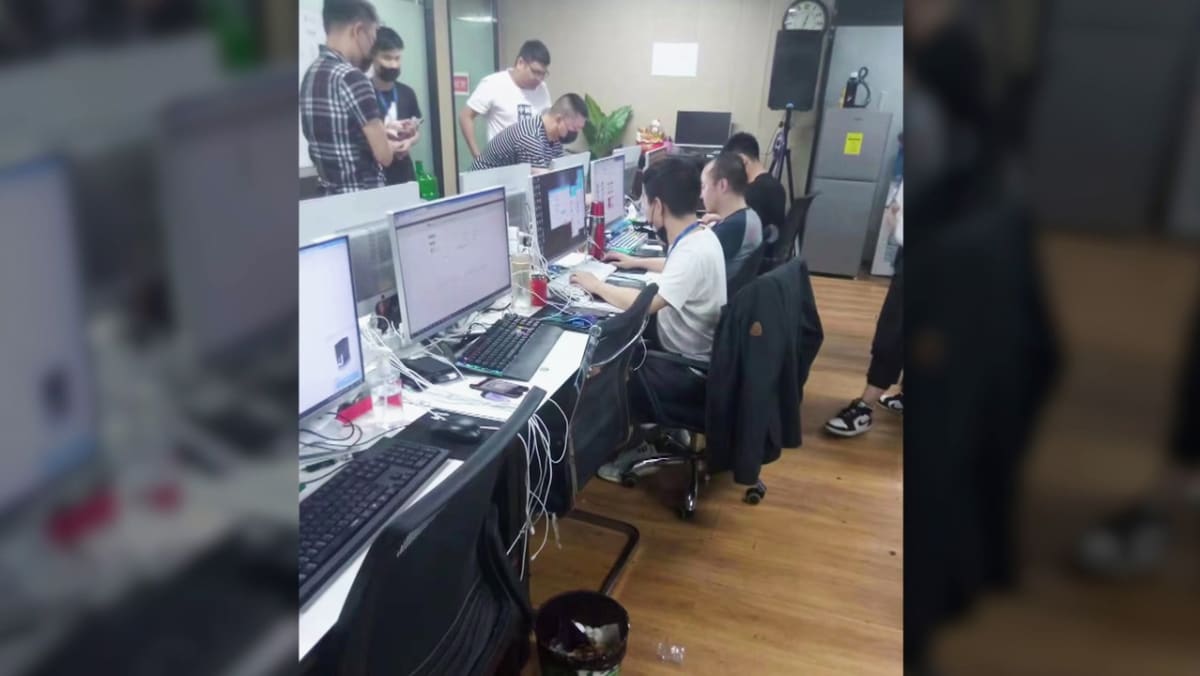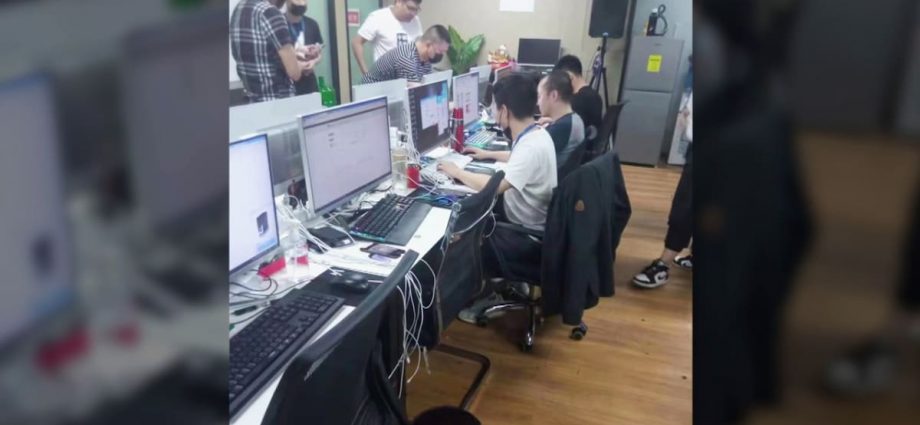
*Names have been changed
SINGAPORE and PHNOM PENH: For some of the people hunched over computers and typing furiously, sweet-talking strangers thousands of miles away, what impels them is the threat of torture — beatings, starvation, even electrocution. For others, it is the prospect of promotion, cash bonuses, or even the promise of drugs.
The spartan room they are in is newly renovated, with rows of office desks. Scores of mobile phones — maybe eight to 10 per person — sit in front of them as they type.
They come from many places, such as China, Indonesia, Malaysia, Thailand and as far as Turkey. Singapore, too, is represented. Most of them are men, but there are also several women.
One man is chatting with a woman from Singapore; she thinks he lives there too. She mentions that she is about to go out and asks what he is doing. He immediately does a Google search for “Singapore weather”, then replies: “I slipped in the rain earlier. Be careful.”
Another man mutters to his colleague: “She’s getting upset that I’m bringing up cryptocurrency. How should I respond?” His colleague looks over the conversation unfolding on WhatsApp, then types a reply.
In a smaller room kept separate from everyone else, everything that appears on their screens, whether desktop or phone, is monitored in real time by a “supervisor” whom some have never met. He, or she, reports to yet another person in a shadowy, seemingly endless chain of command.
In another room is the “marketing” department, where some folks put together voice notes, pictures and videos.
One of them is editing a video of a slender young woman cooking fish head curry. It will be sent to an unsuspecting chat partner somewhere in the US or Australia perhaps. Meanwhile, a picture of an empty fridge is sent to one of the men sitting outside who, in turn, forwards it to a woman in Malaysia he’s been chatting up for weeks.
“I just spent the afternoon cleaning my parents’ fridge,” he types. “What were you doing today?”

